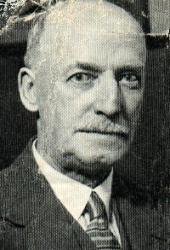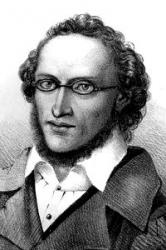Planning worship?
Check out our sister site, ZeteoSearch.org,
for 20+ additional resources related to your search.
- |
User Links
Search Results
When the great sun sinks to his rest
Author: Rev. Maltbie D. Babcock Meter: 8.8.8.8 Appears in 8 hymnals Matching Instances: 8 Lyrics: 1 When the great sun sinks to his rest,
His golden glories thrilling me,
And voiceless longings stir my breast,
Then teach me, Lord, to worship Thee.
2 And when the stars— the daylight fled—
In serried, shining ranks I see,
Filling the splendid vault o’erhead,
Then teach me, Lord, to worship Thee.
3 Or if in solemn forest shades
The calm of nature steals o’er me,
And silence all my soul pervades,
Then teach me, Lord, to worship Thee.
4 Not in the sacred shrines alone,
Which chime their summons unto me,
Would I look upward to Thy throne,
But everywhere would worship Thee.
Amen. Topics: God the Father God in Nature; Adoration; Creation, The; God Nature, His Glory in; Nature Services; Prayer and Intercession; Worship Used With Tune: RIMINGTON
When the great sun sinks to his rest
ST. VENANTIUS
Appears in 19 hymnals Matching Instances: 2 Tune Sources: Rouen church melody Incipit: 13543 23123 56543 Used With Text: When the great sun sinks to his rest
ST. VENANTIUS
When the Great Sun Sinks to His Rest
Author: Maltbie D. Babcock Hymnal: The Cyber Hymnal #7383 Meter: 8.8.8.8 Lyrics: 1. When the great sun sinks to his rest,
His golden glories thrilling me,
And voiceless longings stir my breast,
Then teach me, Lord, to worship Thee.
2. And when the stars—the daylight fled—
In serried, shining ranks I see,
Filling the splendid vault o’erhead,
Then teach me, Lord, to worship Thee.
3. Or if in solemn forest shades
The calm of nature steals o’er me,
And silence all my soul pervades,
Then teach me, Lord, to worship Thee.
4. Not in the sacred shrines alone,
Which chime their summons unto me,
Would I look upward to Thy throne,
But everywhere would worship Thee. Languages: English Tune Title: ST. VENANTIUS
When the Great Sun Sinks to His Rest
When the great sun sinks to his rest
Author: Maltbie D. Babcock Hymnal: The Church Hymnal #d482 (1935)
When the great sun sinks to his rest
Then teach me Lord to worship
Author: Maltbie D. Babcock Hymnal: Hymnal for Colleges and Schools #340 (1956) First Line: When the great sun sinks to his rest Languages: English
Then teach me Lord to worship
Maltbie D. Babcock

1858 - 1901 Person Name: Rev. Maltbie D. Babcock Author of "When the great sun sinks to his rest" in Christian Song Maltbie D. Babcock (b. Syracuse, NY, 1858; d. Naples, Italy, 1901) graduated from Syracuse University, New York, and Auburn Theological Seminary (now associated with Union Theological Seminary in New York) and became a Presbyterian minister. He served the Brown Memorial Presbyterian Church in Baltimore, Maryland, and the Brick Presbyterian Church in New York City. In Baltimore he was especially popular with students from Johns Hopkins University, but he ministered to people from all walks of life. Babcock wrote hymn texts and devotional, poems, some of which were published in The School Hymnal (1899).
Bert Polman
===================
Babcock, Maltbie Davenport, D.D., was born at Syracuse, N.Y., Aug. 3, 1858. Graduating from Syracuse University, he was ordained to the Presbyterian Ministry and was pastor of churches in Lockport, N.Y., Baltimore, and N.Y. City. He died at Naples, Italy, May 18th, 1901. He was richly gifted, and his short career was memorable for the extraordinary influence of his personality and his preaching. Extracts from his sermons and poems were published in 1901 as Thoughts for Every Day Living; and his Biography by Dr. C. E. Robinson in 1904. He contributed to the Presbyterian School Hymnal, 1899, the following hymns:—
1. Gaily the bells are ringing. Faster.
2. O blessed Saviour, Lord of love. Unto Me.
3. Shining Sun, shining sun. Child's Hymn.
The tunes to these hymns were of his own composing. In The Pilgrim Hymnal, 1904, there is:—
4. Rest in the Lord, my soul. Trust and Peace and in the American Methodist Hymnal, 1905:—
5. Be strong: we are not here to play. Activity in God's Service.
Nos. 4 and 5 are from Thoughts for Every Day Living, 1901; but undated. [Rev. L. F. Benson, D.D.]
--John Julian, Dictionary of Hymnology, New Supplement (1907)
Maltbie D. Babcock
Francis Duckworth

1862 - 1941 Composer of "RIMINGTON" in The Hymnal Born: December 25, 1862, Rimington, Yorkshire, England.
Died: August 16, 1941, at his home Swanside in Colne, England.
Buried: St. Mary the Virgin Anglican Church, Gisburn, Lancashire. His gravestone bears the music of Rimington, and a plaque to his memory was placed above the doorway to the former Methodist Chapel in Stopper Lane, Lancashire.
When Duckworth was five years old, his family moved to the village of Stopper Lane, near Rimington. He had to leave school at age 12 to help in the family business. At age 20, he moved to Burnley, Lancashire, to work for a tobacconist cousin. Six years later, he returned to live at Colne, and in 1899 took a grocery business in Market Street, Colne.
Duckworth had an early interest in music, but received only three months of formal lessons. Shortly after arriving in Colne, he became deputy organist (later organist) at the Albert Road Methodist Church, serving until 1929. He composed numerous hymn tunes, 18 of them appearing in the Rimington Hymnal. His tune Rimington was sung by a massive congregation of British troops on the Mount of Olives after the surrender of Jerusalem during World War I.
--www.hymntime.com/tch
Francis Duckworth
Joseph Mainzer

1801 - 1851 Composer of "MAINZER" in Christian Song Abbe Joseph Mainzer, b. Trier, 1807; d. Mancehster, 1851
Evangelical Lutheran Hymnal,
======================
Born: October 21, 1801, Trier, Germany.
Died: November 10, 1851, Higher Broughton (near Manchester), England.
Mainzer was educated at the Maîtrise of Trier Cathedral. Having studied engineering, he worked in mines at Saarbrücken, but was ordained in 1826 and after a few years became an abbé. He left Germany in 1833 for political reasons, settling in Brussels, then Paris, and Britain in 1839, living first in Edinburgh, then, after 1847, in Manchester. He published the Musical Times and Singing Circular. Novello took over the publication in 1844, renaming it the Musical Times.
Sources:
Pratt, p. 622
http://www.hymntime.com/tch/bio/m/a/i/mainzer_j.htm
=====================
http://en.wikisource.org/wiki/Mainzer,_Joseph_(DNB00)
Joseph Mainzer


 My Starred Hymns
My Starred Hymns


